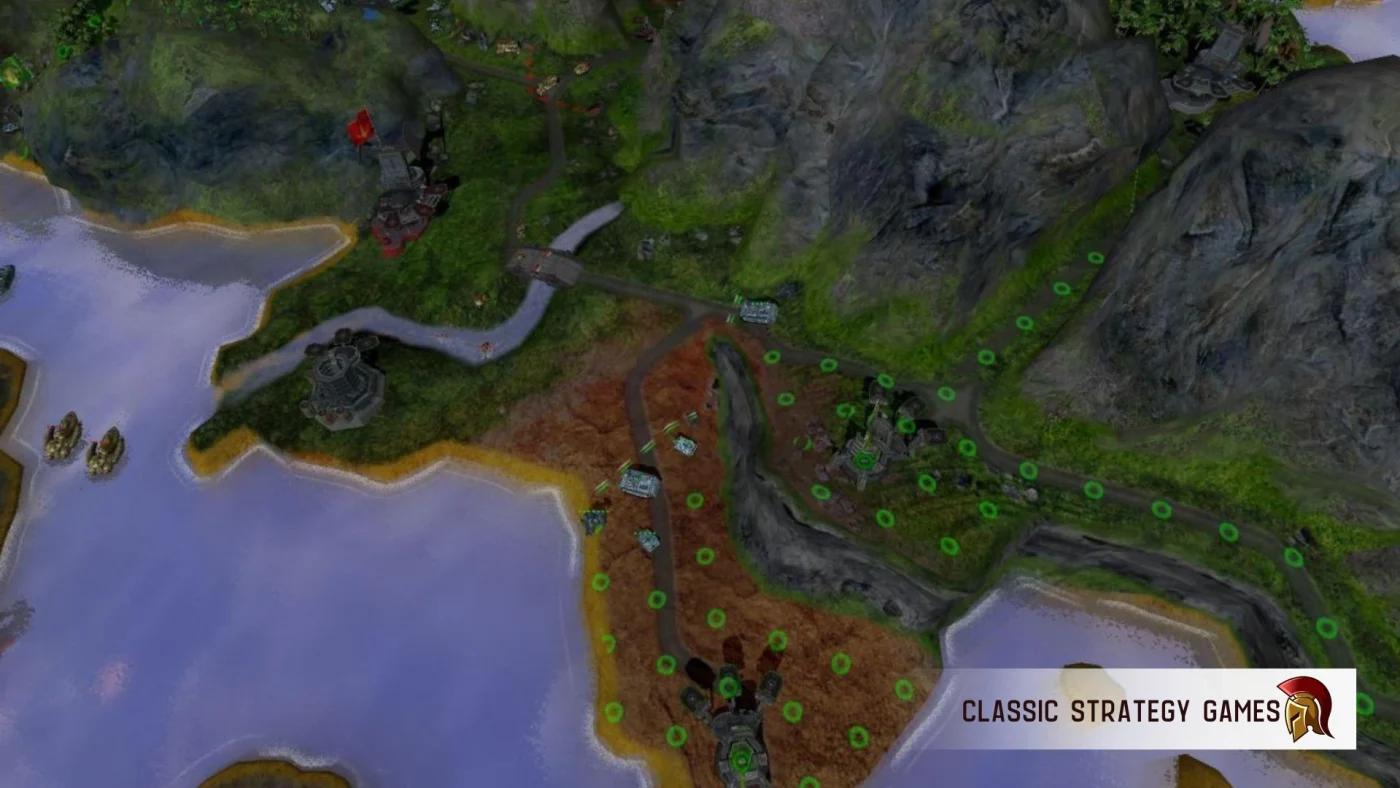Released in 2005 by Wargaming.net, Domination was a turn-based strategy game that expanded upon the mechanics of its predecessor, Massive Assault. Built around a unique war-economy system, it combined deep strategic planning with explosive tactical combat across futuristic battlefields. While it never reached mainstream success, Domination was a compelling entry in the genre, offering a mix of long-term strategic depth and immediate tactical decision-making that rewarded careful planning and adaptive play.
A War for Global Control
Set in a near-future world torn apart by two opposing factions, Domination followed the struggle between the Free Nations Union (FNU) and the Phantom League. Each side vied for control over a series of planetary battlefields, using a combination of diplomacy, secret alliances, and overwhelming military force. While the narrative wasn’t particularly deep, it provided enough context to support the game’s strategic framework.
The world map functioned as a strategic layer where players managed their forces, planned invasions, and reinforced occupied territories. Unlike traditional 4X games, Domination focused purely on military conquest, streamlining economic and political mechanics in favour of war-focused decision-making. This kept the game fast-paced while still requiring careful logistical planning.
Turn-Based Tactical Combat with a Twist
The game’s core battles played out in turn-based tactical engagements reminiscent of Advance Wars or Panzer General, but with a few key differences. Each unit had specific roles and strengths, and battles weren’t just about numbers – positioning, terrain, and combined arms strategies were critical to victory. The game also featured a unique war-economy system, where players had access to secret allies within each battlefield. These allies could be activated at crucial moments, turning the tide of combat when used strategically.
Unit variety was strong, with a mix of land, air, and naval forces. Infantry held cities, tanks provided firepower, artillery offered long-range bombardment, and air units introduced a vertical element to engagements. However, every move needed to be calculated carefully, as mistakes could be costly.
One of the standout features was its “Secret Allies” mechanic, where neutral territories on the map could suddenly join the player’s side, revealing hidden reinforcements. This added an element of deception and surprise, forcing opponents to remain vigilant and expect the unexpected.
Multiplayer and AI Challenges
While Domination featured a single-player campaign, its real strength was in multiplayer skirmishes. The game supported hotseat, LAN, and online play, allowing for head-to-head battles between human opponents. The AI provided a decent challenge, especially in later missions, but the unpredictability of human opponents made for a far more engaging experience.
Each match required strategic foresight, as overextending could lead to disaster. Since resources were finite and unit production had to be planned in advance, reckless aggression often backfired. Experienced players knew how to bait opponents into traps, leveraging terrain and unit matchups to outmanoeuvre stronger forces.
Visuals and Presentation
For a turn-based strategy game from 2005, Domination looked solid. The battlefields were colourful and well-detailed, with units standing out clearly against varied terrain types. The interface was functional, if somewhat clunky at times, but it allowed for quick and efficient command execution.
Animations were simple but effective, giving combat a satisfying weight. Explosions, gunfire, and vehicle movement all had a crisp, tactical feel, reinforcing the sense of battlefield control. While it wasn’t a graphical powerhouse, it held up well for the genre, focusing on readability and function over flashy effects.
The soundtrack and sound design complemented the game’s military tone, with orchestral scores adding weight to battles and subtle sound cues keeping players informed of battlefield developments.
Legacy and Influence
Despite its solid mechanics and deep strategy, Domination struggled to find a large audience. It remained a niche title, overshadowed by bigger franchises like Civilization and Advance Wars, and eventually faded into obscurity. However, it served as a stepping stone for Wargaming.net, the studio that would later rise to prominence with World of Tanks and other large-scale multiplayer strategy games.
For those who enjoy turn-based war games with a strong emphasis on tactics and deception, Domination remains a hidden gem. While it may not have had the staying power of other strategy titles from its era, it offered a unique and rewarding experience for those willing to dive into its layered mechanics.
Even today, it stands as an example of how strategy games can balance deep mechanics with accessible, fast-paced gameplay. It may not have reached classic status, but for the right kind of player, it was a satisfying, if underrated, battlefield to conquer.


